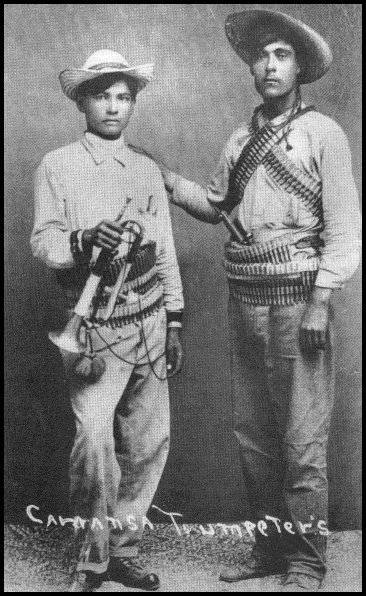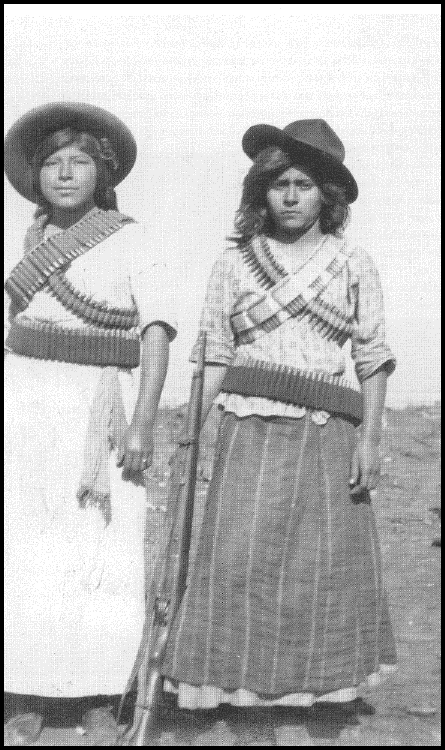To a Revolution
An Underground Cultural History of
El Paso and Juárez: 1893 to 1923
David Dorado Romo
(Cinco Puntos Press)

-
El Paso's main role in the Mexican Revolution was as a center for arms smuggling and espionage. During this period, the battles of the Mexican Revolution were sometimes won and lost, not out in the field, but back in the streets of El Paso. Whether or not a faction was successful in getting arms across the border into Mexico through the major customs port of El Paso-Juárez often meant the difference between victory and defeat.
- There's more action in Juárez. But it didn't appeal to me either. There was too much suffering there.
 Romo could not get away from his hometown, and we should be grateful. He has collected a fine, fat book with more than 200 photographs and dozens of tidbits from El Paso-Juárez history.
Romo could not get away from his hometown, and we should be grateful. He has collected a fine, fat book with more than 200 photographs and dozens of tidbits from El Paso-Juárez history.
For instance: that tourists flocked to El Paso to watch the various battles across the border. That Ochoa was not only a key element to the Revolution, but an inventor at the same time.
That Ricardo Flores Magón spent the last part of his life in a U. S. prison for opposing World War I. That the Mutual Film Company came to El Paso to make The Life of General Villa --- with its star under contract: Pancho Villa. That Zyklon B ---yes, that Zyklon B --- was used as a disinfectant for Mexicans who crossed the border into El Paso during the war.
What the U. S. didn't do was to protect the Mexicans --- and its own citizens --- against the influenza epidemic which caused so many deaths in both countries in 1918 and 1919. It started, apparently, in a military barracks in Lawrence, Kansas.